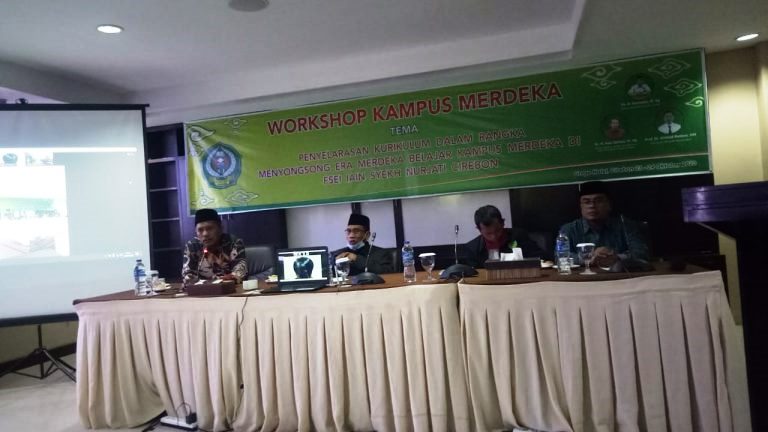Research, Mindset, and World Class University
TAK satu pun perguruan tinggi (PT) Indonesia masuk dalam kategori world class university (WCU), baik versi The Times Higher Education Supplement (THES), Academic Ranking of World Universities (ARWU), maupun Webometrics. Begitu bunyi data dan statistik internasional terbaru (2016).
Padahal, upaya pemerintah sudah banyak. Antara lain dengan menetapkan sistem penjaminan mutu pendidikan tinggi (SPMPT). SPMPT yang sudah disusun berulang-ulang ini merupakan guideline yang harus dipatuhi dalam usaha meningkatkan mutu tiap-tiap PT.
Namun begitulah. Meskipun guideline sudah ada, PT-PT kita ternyata tidak gampang memenuhi persyaratan, standar, dan kriteria SPMPT.
Perguruan Tingi Unggulan
Pemerintah tak henti-hentinya memperbaiki mutu PT itu. Sementara PT yang sudah tidak memenuhi syarat pendirian (abal-abal) direkomendasikan untuk ditutup. Sebaliknya, PT yang sudah baik terus dibina dan ditingkatkan lagi mutunya, bahkan sampai mampu bersaing di tingkat global.
Untuk mencapai maksud tersebut sudah banyak insentif dan hibah disediakan oleh pemerintah, termasuk pembiayaan sarana dan prasarana agar mereka dapat memenuhi standar mutu tadi.
Pada tahun 2015 lalu dibentuk gugus tugas untuk membantu lima PT unggulan nasional untuk mencapai peringkat WCU. Kelima PT unggulan itu adalah Universitas Indonesia (UI), Institut Teknologi Bandung (ITB), Universitas Gadjah Mada (UGM), Universitas Airlangga, dan Institut Pertanian Bogor, agar –paling tidak– diharapkan bisa masuk 500 top dunia.
Namun ada pertanyaannya. Jika melihat peringkat PT kita yang masih jauh tertinggal, apa mungkin hal itu dapat tercapai? Untuk menjawab hal itu, tentu, pertama-tama, kembali pada asas, bahwa setiap PT unggulan harus sungguh-sungguh menerapkan SPMPT. Ini hal mendasar yang wajib dipenuhi oleh setiap PT.
Kemudian PT unggulan tadi harus dapat memenuhi tuntutan dan persyaratan lembaga-lembaga internasional. Tanpa langkah penyesuaian ke persyaratan internasional ini, PT kita, meski sudah disebut PT unggulan, tampaknya akan mengalami kesulitan masuk 500 top dunia.
Penuhi Syarat Inti
Ada beberapa persyaratan yang harus dipenuhi untuk masuk WCU. THES (London) mensyaratkan empat hal, yakni kualitas riset dengan bobot 60%, kesiapan kerja lulusan (10%), pandangan internasional (international outlook) (10%), dan kualitas pengajaran (20%).
ARWU, yang berkedudukan di Tiongkok, mematok lima syarat, yaitu jumlah alumni/staf yang mendapat penghargaan internasional, jumlah peneliti (dosen) yang risetnya banyak dikutip peneliti lain, jumlah artikel yang diindeks oleh jurnal yang telah ditentukan, persentase artikel yang dipublikasikan jurnal internasional, dan jumlah biaya riset PT yang bersangkutan.
Persyaratan Webomatrics berbeda lagi. Ada empat syarat, yakni berapa banyak tautan situs eksternal dari situs lain, banyaknya “halaman” yang ditemukan “mesin pencari” di internet, banyaknya volume file yang ada di situs PT dalam format pdf, ps, doc, dan powerpoint, dan jumlah tulisan akademik yang dijumpai di Google Scholar.
Dari beragam syarat itu, terdapat tiga syarat inti yang patut diperhatikan dengan sungguh-sungguh. Pertama, bagaimana perguruan tinggi merancang kegiatan riset yang dapat menghasilkan invensi dan inovasi kualitas dunia.
Kedua, bagaimana agar tulisan peneliti atau dosen dapat dipublikasikan oleh jurnal akademik internasional dan dapat menjadi referensi oleh peneliti dan dosen PT lain. Dan ketiga, bagaimana staf atau alumni suatu PT dapat meraih penghargaan-penghargaan bertaraf internasional.
Riset dan Mindset
Dari ketiga syarat inti tersebut, tampak bahwa unsur riset merupakan syarat terpenting dalam WCU. Artinya, tanpa reputasi riset, sebuah PT tidak mungkin masuk peringkat dunia. Riset sudah menjadi kewajiban di dunia akedamik, yang mana tradisi ini memang sudah ada sejak dulu kala.
Di Indonesia, tradisi riset masih perlu mendapat perhatian serius. Pada umumnya PT kita masih dominan terkonsentrasi pada kegiatan pendidikan dan pengajaran. Sementara kontribusinya terhadap kegiatan riset masih samar-samar, jika tak boleh disebut “tak-jelas.”
Kiprah riset disini masih diposisikan sebagai ‘academic exercises’, belum fokus pada usaha untuk menghasilkan invensi dan inovasi. Padahal dalam konsep terkini, PT sudah diposisikan menjadi pusat riset (centre of excellent), yang umumnya bekerja sama dengan industri.
Melihat kondisi yang dialami PT kita saat ini, hendaknya para pemimpin PT, peneliti maupun kalangan praktisi perlu mengubah mindset atau orientasi. Seyogianya riset PT kini menghasilkan kekayaan intelektual, invensi, dan inovasi, yang secara nyata dapat dimanfaatkan untuk keperluan masyarakat dan industri sehari-hari.
Buang pemikiran bahwa riset hanya untuk paper atau memenuhi angka kredit, ataupun untuk kenaikan pangkat belaka. Perubahan mindset dan orientasi ini mutlak. Apalagi produk riset PT sudah dituntut –dan semestinya– menjadi bagian pendorong roda perekonomian nasional.
Kembali lagi, jika PT-PT di Tanah Air dapat memenuhi ketiga syarat inti tersebut, atau riset sudah menjadi prioritas di suatu PT, bukan tidak mungkin lembaga-lembaga pemeringkat akan mulai memperhitungkan eksistensi PT-PT kita.
Kita harus selalu optimistis.
(Sakti Nasution, Kepala Bagian Hukum, Kerja Sama, dan Layanan Informasi pada Direktorat Jenderal Kelembagaan Ilmu Pengetahuan dan Pendidikan Tinggi Kemenristekdikti).
(http://www.kopertis12.or.id/2016/10/16/research-mindset-and-world-class-university.html)




